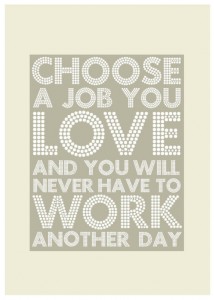On 25th September, I was on the expert panel for the Guardian Careers discussing the ingredients of a successful career change. You can find the full discussion here. Below I am publishing some of the most relevant questions and my answers to them. Hope the tips provided will be helpful to you in your career change pursuits. If you have any further questions or concerns, please don’t hesitate to get in touch with me on dasha@careercoachingventures.com.
Q: I am transitioning from 15 years as a self-employed photographer and home educator. I want to transition into the finance and investment sector because that was my primary interest before I had a family. I do not have much in the way of relevant experience. I am currently studying for an MSc in International Business. How can I demonstrate to employers that they can take a chance on somebody who is applying for entry level positions who has great life experience, takes risks but is older?
A: Hi, you obviously have a lot of good experience, ambition and I believe that doing your MSc will increase your chances considerably. However, the realistic situation in the finance sector now is that they prefer to hire candidates straight out of university (their target schools) for junior (analyst) positions or MBAs for associate positions. So I would suggest, the best strategy in your case would be to start networking/getting to know senior people in your target institutions straight away as due to the nature of your background, you would most likely need a personal recommendation for them to hire you. Work on your CV emphasizing your numerical, financial analysis and leadership skills and you can also stress your entrepreneurship experience (working as a photographer for instance). All the best of luck!
Q: I am a graduate of two years and currently I am in a job that is not that level. My dream was a carreer in TV and media but it looks like I have to part that on hold. Now I am trying to figure what I want to do because everything else does not inspire me as much. How do I choose a career?
A: First of all, what is the main reason you think your dream career is out of reach? Perhaps, it seems so at first but if you dig deeper and brainstorm, you may come up with some closest alternatives or subsector within your dream industry you could start with? Or perhaps gaining some voluntary experience within TV and media sector? If you feel you don’t like the work you are doing now, then I would consider various ways to reach your dream – do you know somebody in the sector who can assist you in getting unpaid work as a starting point to get your foot through the door for instance?
Q: How to tell if an employer welcomes candidates who changed careers? any specifics/places to look for..?
A: I believe that the majority of employers would love to hear from ambitious career changers but the best way to actually understand the internal culture of the business and the way they treat various categories of people, including during their recruitment process, is to talk to those currently employed within the company. I would say – spread your net wide – from more junior to senior employees to really understand how it all works and whether the culture is accepting or not.
Q: How can non-student with 1 career already get work experience when all w/e are geared at young students or recent grads?
A: Generally it depends on the industry. With one career already behind your belt, you have a lot of practical skills new grads would not necessarily possess and this is what you should stress during your application/interview process – how the skills you have gained make you different/better than those straight from university.


Follow Us!